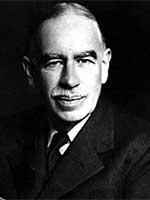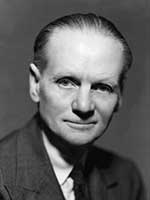Citaten 1 t/m 9 van 9.
-
De herhaling van ellende te voorkomen ligt, helaas! buiten de macht der mens.
Origineel:To prevent the recurrence of misery is, alas! beyond the power of man.
Bron: An Essay on The Principle of Population (1798) V, 25, 4-5. Voor de volledige tekst zie www.marxists.org― Thomas Malthus -
De kracht van de bevolking is zo veel groter dan de kracht van de aarde om het voedsel voor de mens te produceren, dat voortijdig sterven, in een of andere vorm, bij de mensheid langs zal komen.
Origineel:The power of population is so superior to the power in the earth to produce subsistence for man, that premature death must in some shape or other visit the human race.
Bron: An Essay on The Principle of Population (1798) VII, 20, 2-4. Voor de volledige tekst zie www.marxists.org― Thomas Malthus -
Het is gebleken dat door de onvermijdelijke natuurwetten, sommige mensen genoodzaakt zijn te lijden onder gebrek. Dit zijn de ongelukkige personen die, in de grote loterij van het leven, een blanco hebben getrokken.
Origineel:It has appeared that from the inevitable laws of our nature, some human beings must suffer from want. These are the unhappy persons who, in the great lottery of life, have drawn a blank.
Bron: An Essay on The Principle of Population (1798) X, 29, 1-15― Thomas Malthus -
Indien niet afgeremd, neemt de populatie volgens een meetkundige verhouding toe. Voedsel neemt slechts volgens een rekenkundige verhouding toe.
Origineel:Population, when unchecked, increases in a geometrical ratio, Subsistence, increases only in an arithmetical ratio.
Bron: An Essay on The Principle of Population (1798) I, 18, 1-2― Thomas Malthus -
De mens kan niet te midden van overvloed leven.
Origineel:Man cannot live in the midst of plenty.
Bron: An Essay on The Principle of Population (1798) X, 7, 1― Thomas Malthus -
Het kwaad bestaat niet in de wereld om wanhoop te creëren, maar activiteit.
Origineel:Evil exists in the world not to create despair but activity.
Bron: An Essay on The Principle of Population (1798) XIX, 15, 1― Thomas Malthus -
Ik denk dat zal blijken dat ervaring, de ware bron en fundering van alle kennis, onveranderlijk de waarheid ervan bevestigt.
Origineel:I think it will be found that experience, the true source and foundation of all knowledge, invariably confirms its truth.
Bron: An Essay on the Principle of Population (1798) ch.1. Voor de volledige tekst zie www.marxists.org― Thomas Malthus -
Ik heb toevallig een enorme kiespijn op het moment dat ik dit schrijf.
Origineel:I happen to have a very bad fit of the tooth-ache at the time I am writing this.
Bron: An Essay on The Principle of Population (1798) XII, 6, 8― Thomas Malthus -
Als de bevolking en het voedsel in dezelfde verhouding waren toegenomen, is het waarschijnlijk dat de mens nooit uit de barbaarsheid zou zijn gekomen.
Origineel:Had population and food increased in the same ratio, it is probable that man might never have emerged from the savage state.
Bron: An Essay on The Principle of Population (1798) XVIII, 11, 16― Thomas Malthus
 John Maynard Keynes
John Maynard Keynes Alfred Marshall
Alfred Marshall Norman Angell
Norman Angell